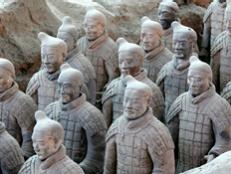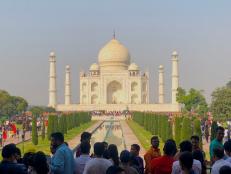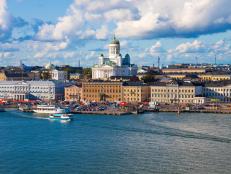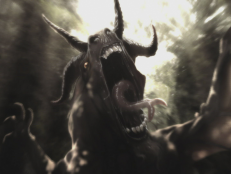Russian Sports

Vanessa Van Rensburg
In the sports world, Russia is a country known for its continued strength and success. During the Soviet era, the USSR national team placed first in the total medals won at 14 of its 18 Olympic appearances. Carrying on the Soviet legacy, the Russian national team has never dropped below third place in those rankings. Discover the strong cultural background and rigorous traditions that form the powerhouse known as Russian sports.
Ice Hockey
Abroad, about 30 Russians play in the American NHL, and the Russian team consistently dominates the International Ice Hockey Federation's (IIHF) men's world championship. At home, the Kontinental Hockey League (KHF) is a Eurasian international professional ice hockey league founded in 2008, a successor to the Russian Super League. The KHL began its operations with 24 teams, 21 of which are based in the Russian Federation with the remaining 3 located in Belarus, Latvia and Kazakhstan.
The vigorous training of Russian athletes has bred some of the best hockey players of all time. Among them are Viacheslav Fetisov and Vladislav Tretyak. Fetisov was the heart and soul of the great Soviet teams of the 1980s and a huge advocate that Russian players gain the freedom to play outside the Soviet Union, namely in the NHL. Tretyak is a legendary goalie, a 10-time World Champion, 3-time Olympic champion and 1-time Canada Cup champion. He is also the only modern-era non-NHL player in the Hockey Hall of Fame -- one of only two Russian players so honored.
There are over 123 hockey arenas in Russia including the Krylatskoye Ice Palace and Malaya Arena Luzhniki in Moscow and the Jubilee Sports Palace in St. Petersburg. While tickets to the big games may be hard to come by, there are plenty of opportunities to watch the Russian hockey phenomenon in action.
Figure Skating
Figure skating in Russia has a long history filled with national and world titles. In 1908, Nikolai Panin-Kolomensky won gold at the London Olympics. In the 1950s, after the Soviet Union had developed into a political and athletic world power, figure skating boomed. In 1964, 56 years after Nikolai Panin-Kolomensky's gold, Soviet figure skaters Lyudmila Belousova and Oleg Protopopov won the pairs title at the Innsbruck Olympics; a legacy had been born.
In every Winter Olympics since 1964, a Soviet or Russian pair has won gold -- one of the longest winning streaks in the history of modern sports. One of the most famous couples in pairs skaters are Russians Tatiana Totmianina and Maxim Marinin, who have won four European championships, two World Championships and gold at the 2006 Winter Olympics. Elena Viktorovna Berezhnaya and partner Anton Sikharulidze are another favorite Russian couple awarded Olympic gold at the 2002 Winter Olympics.
Artistic Gymnastics
Originating in Greece as an organized sport more than 2,000 years ago, the current form of gymnastics evolved in Germany and the former Czechoslovakia in the early 19th century. Gymnastics burst onto the Olympic scene in 1896 -- men's only, women had to wait until 1928.
Before the breakup of the Soviet Union, Soviet gymnasts dominated both men's and women's gymnastics. From 1952 to 1992, the Soviet women's squad won almost every single team title in World Championship competition, including the Summer Olympics. The only exceptions being the 1984 Olympics, which Russia did not attend and the 1966, 1979 and 1987 World Championships, where Russia came in second. This Soviet legacy remains the strongest in the history of Artistic Gymnastics, and the Russian team continues to perform strongly medaling at every World and Olympic competition in the men's and women's disciplines.
Famous Russian gymnasts include Nikolai Andrianov, men's record holder for most Olympic medals and more recently the most decorated women's gymnast, Svetlana Khorkina.
Chess
Yes, you read right, chess. Russians, along with many others, consider chess to be a physically demanding experience as well as an intellectual exercise. In fact, chess is a recognized sport of the International Olympic Committee. The winner of the 1948 Chess Championship, Russian Mikhail Botvinnik, began an era of Soviet dominance in the Chess world. Russians continue to dominate in the post-war era. The Russian school of traditional Chess distinguishes itself through rigorous use of scientific methods of experimentation and systematic analysis.
Russian Garry Kasparov is widely considered one of the best chess players of all time, revered for his superiority in difficult situations. Russian Vladimir Kramnik, an international grandmaster, defeated Kasparov and currently carries on Russia's strong presence in the chess world.



























.jpg.rend.hgtvcom.231.174.suffix/1674758726773.jpeg)











